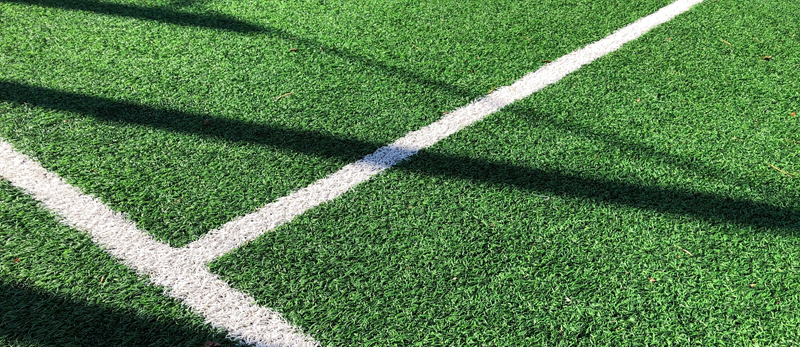As the 2023 Rugby World Cup fever, that has swept across the sporting world, comes to an end this weekend, the anticipation and excitement have been undeniable. Sports managers tasked with arranging accommodations for their traveling teams face a crucial decision—choosing the perfect sports resort.
Wayne Blake, GM of ANEW Resort White River Mbombela (as of 1 November 2023 part of the ANEW Hotels & Resorts portfolio, previously the Ingewenyama Conference & Sports Resort), offers valuable insights and top tips for sports managers seeking the ideal resort to accommodate their teams and athletes.
The illustrious roster of top-tier sporting teams that have graced the halls of this property includes renowned names such as the All Blacks (New Zealand’s National Rugby Team), Bafana Bafana (South Africa’s National Team), Kaizer Chiefs, Eswatini National Football Association, and TS Galaxy, to name just a few.
Here are Wayne’s ten top tips:
Identify your team’s needs
Defining your team’s needs is essential when booking a sports resort, with soccer and rugby teams having distinct, yet different requirements. For soccer, this often means well-maintained regulation-sized fields, tactical spaces, and lean nutrition options. In contrast, rugby teams may need larger training areas, accommodations for robust athletes, and high-calorie diets (more on this in point 4). The duration of the stay is also vital, with soccer teams favouring short, intense training periods and rugby teams needing longer-term preparation. These considerations ensure that the chosen resort aligns perfectly with the team’s sport and goals, optimising the training experience.
Prioritise location and accessibility
Location reigns supreme when selecting a sports resort. Proximity to major transportation hubs, such as airports and highways, and accessibility to medical facilities can significantly simplify logistics for traveling teams. Convenient access allows athletes and staff to reach the resort swiftly and efficiently.
Proximity to major transportation hubs, such as airports and highways, and accessibility to medical facilities can significantly simplify logistics for traveling teams.
Inspect sports facilities
First-class sports facilities and venues are essential for a successful training camp or sporting event. Sports managers should thoroughly assess the resort’s facilities, ensuring they meet the specific requirements of their teams. High-quality playing fields, the type of sporting equipment available, quality of the fields and safety measures can all significantly impact your team’s morale.

Evaluate the accommodation options and quality
Comfortable and well-equipped lodging is a top priority for your team’s rest and recovery. Sports managers should consider the resort’s accommodation offerings, ensuring they align with the needs and preferences of their athletes and staff. For team cohesion and convenience, explore options for group accommodations that offer clean and spacious rooms with amenities like Wi-Fi (to stay connected to their loved ones), laundry facilities and comfortable beds. A good night’s rest can make a monumental impact in your team’s performance.
For team cohesion and convenience, explore options for group accommodations that offer clean and spacious rooms with amenities like Wi-Fi (to stay connected to their loved ones), laundry facilities and comfortable beds.
Dining and nutrition
Dietary considerations are paramount for athletes across various sports like soccer, rugby, hockey, and cricket. Soccer players benefit from balanced nutrition for sustained energy and recovery, while rugby players require higher caloric intake due to their intense physical demands. Hockey players need quick energy sources, and cricket players require endurance support. In each case, sports managers must ensure that the chosen catering at the hotel or resort can cater to these specific dietary needs, including accommodating individual preferences or restrictions, to optimise the athletes’ performance and well-being during their stay.

Embrace technology and connectivity
In today’s digital age, strong Wi-Fi connectivity is a must. Sports managers should verify the resort’s tech infrastructure, ensuring it can support communication, audio-visual equipment for team meetings and presentations, for example.
Prioritise security and privacy
Safety and privacy are non-negotiable. Sports managers should ensure that the chosen resort provides a secure environment for athletes and their equipment. Respecting athletes’ privacy is equally vital.
Balance work with recreation and team building
Athletes require downtime and relaxation. Resorts offering recreational activities and team-building adventures help strike the right balance between training and relaxation. These activities can foster team bonding and enhance the overall experience.

Mind your budget
While quality is essential, sports managers should remain budget conscious. Prioritise your team’s needs and budget accordingly. Some resorts and groups offer loyalty programmes or specific packaged rates that can result in cost savings and additional benefits for repeat bookings. Sports managers should explore these opportunities to maximise the value of their choice.
Do your research and plan for contingencies
Before making a final decision, sports managers should conduct thorough research. Reading reviews and testimonials from others who have used the resort for similar purposes can provide valuable insights and help inform their choice. And, always have a backup plan in case of unforeseen circumstances, such as bad weather. Also ensure the resort or facility has a contingency plan in place to minimise any disruptions to your training schedule.
All images from Unsplash: Cover image – Olga Guryanova; Sports facilities – Calvin Jung; Healthy eating – Shayda Torabi; Team building – Jannes Glas




